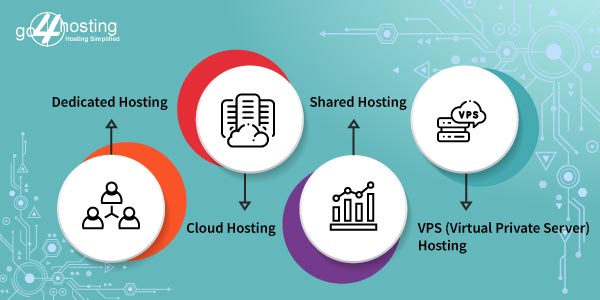Demystifying Web Hosting: Your Ultimate Guide to Indian Servers

Contents of Table
As more and more digital ventures take flight, Indian enterprises and visionaries are awakening to the true value of establishing a robust online footprint. Be it a bustling e-commerce emporium, a heartfelt personal blog, or a sleek corporate website, the vitality of these digital domains revolves around dependable and agile web hosting services. The essence of web hosting goes beyond just technicalities – it’s akin to the backbone that steers the efficiency and reach of websites. It’s the very bedrock on which websites stand and extend their handshakes to users scattered across the globe.
What Web Hosting is and How it Works?
Imagine a website as a digital storefront or an online home for your content. Just like physical space is needed to host a store, digital space is required to host a website. It is when the concept of web hosting in India steps onto the stage. Web hosting is the service that offers this virtual area for your website, allowing it to be stored, accessed, and available over the internet.
At its core, web hosting in India involves a network of powerful computers called servers. These servers are designed to store and manage websites, data, and various online resources. When an individual types your website’s domain name into their web browser, a series of intricate actions is set into motion:
- Domain Name System (DNS) Resolution: The user’s browser requests the Domain Name System (DNS) servers to translate the human-readable domain name into an IP address. In this unique server identifier, your website is hosted.
- Request to Hosting Server: The user’s browser communicates with the hosting server’s IP address, requesting the website’s files and data.
- Server Processing: The hosting server receives the request and locates the requested website’s files. These files can include HTML, images, videos, and more. The server processes these files and generates a web page.
- Data Transmission: Once the hosting server processes the web page, it’s sent back to the user’s browser using the internet.
- Rendering the Web Page: When the web page reaches the user’s browser, it unravels the HTML, CSS, and other building blocks, conjuring them into the vibrant visual display of the website’s essence.
Different types of web hosting
Choosing the right web hosting in India option is crucial when setting up a website. It plays a vital role in shaping your website’s performance, speed, and dependability. In this segment, we’ll unravel the mysteries surrounding the different forms of web hosting that are designed to fit seamlessly into the Indian landscape.

- Shared Hosting
Shared hosting is like renting a small space in an apartment complex. Your website shares resources like disk space and server power with others on the same server. It’s easy on the wallet, making it an ideal choice for small enterprises, personal bloggers, and startups. However, remember that resources are shared among several websites, and your site’s performance might be affected if another site on the same server experiences a sudden increase in traffic.
- VPS (Virtual Private Server) Hosting
VPS hosting is akin to owning a condominium. While on a shared server, you have dedicated resources isolated from other users. It’s more powerful and flexible than shared hosting. This option is suitable for websites with moderate to high traffic, as it offers better performance and control without the cost of a dedicated server.
- Dedicated Hosting
Dedicated hosting is like owning a standalone house. You have an entire server exclusively for your website. This selection provides unparalleled performance, exceptional security, and unrivaled customization. Dedicated hosting proves its mettle for sizable enterprises, bustling e-commerce platforms, and websites that command significant traffic. However, it’s worth highlighting that this choice does come with a higher price tag.
- Cloud Hosting
Cloud hosting is like a dynamically scalable setup. Instead of relying on a single physical server, your website is hosted on a virtual network of interconnected servers. It offers flexibility and scalability, allowing you to adjust resources based on traffic spikes. Cloud hosting suits websites with varying traffic levels and those seeking high reliability.
Significance of Server Location for Website Performance
In the digital realm, where speed and accessibility reign supreme, the server location of your website plays a pivotal role in determining its performance. As businesses and individuals seek to establish their online presence, choosing web hosting in India becomes crucial.
Imagine a virtual courier delivering your website’s content to visitors. The distance this courier needs to travel matters—a shorter length translates to faster delivery. Similarly, the geographical distance between your hosting server and visitors impacts your site’s loading speed. When your web hosting server is closer to your target audience, the data has a shorter distance to travel, resulting in quicker loading times.
Benefits of Choosing Indian Servers for Web Hosting
In the ever-evolving landscape of web hosting in India, the significance of server location has emerged as a pivotal factor that can significantly impact your website’s performance and user experience. The advantages of choosing web hosting servers located in India are abundant. Let’s peek at a few of them:
- Faster Loading Times for Indian Visitors
Envision a scenario where your website’s visitors eagerly wait for your content to load, only to be met with sluggish loading times. It is where the geographic proximity of servers comes into play. When you choose Indian servers for your web hosting, you’re effectively reducing the distance between your website’s data and your audience. It leads to quicker loading times, ensuring visitors can access your content without frustration.
2. Enhanced SEO Performance
Search engines such as Google consider website speed when ranking search results. Websites hosted on servers closer to their target audience tend to load faster, thus providing a better user experience. Its improved loading speed can positively impact your website’s search engine rankings. Thus allowing you to reach a wider audience and boost your organic traffic.
3. Better User Experience
A seamless user experience is a cornerstone of any successful website. Indian servers contribute to this by minimizing latency, the delay when data travels long distances between the server and the user’s device. Lower latency results in quicker response times, smoother navigation, and improved user satisfaction.
4. Targeting the Indian Audience
If your website is geared towards an Indian audience, hosting your site on Indian servers makes perfect sense. The minimized latency guarantees that your content swiftly reaches your intended audience, creating a heightened and captivating user experience. Whether managing an online store, maintaining a blog, or overseeing a corporate website, tailoring your approach to align with local preferences can significantly alter the game.
5. Compliance with Data Regulations
Web hosting in India ensures that you align with data protection regulations set by the Indian government. It can be especially important if your website deals with sensitive user data or financial transactions. Staying compliant safeguards your users’ information and establishes trust with your audience.
6. Support and Communication
Opting for web hosting in India often comes with smoother communication and support. Dealing with support teams in the same time zone can result in quicker response times and more efficient issue resolution. It can be a crucial factor in maintaining the health and functionality of your website.
7. Cultural Relevance
Hosting your website on Indian servers can contribute to a sense of familiarity and cultural relevance for your Indian audience. The data center’s physical location within the country can establish a sense of local presence, which might resonate positively with your visitors.
Factors to Consider When Choosing an Indian Web Host
In the intricate web of website management, choosing the right web hosting provider can be the linchpin that either propels your online presence to soaring heights or anchors it down. Let’s highlight the critical factors demanding your attention when selecting an Indian web hosting companion.
- Uptime Reliability
Picture this: Your website is a virtual storefront, open 24/7, catering to a global audience. Now, imagine the dismay of potential customers encountering a “Site Unavailable” message due to server downtime. It is where uptime reliability comes into play. It’s the bedrock of your website’s availability.
When evaluating an Indian web host, scrutinize their uptime guarantees. A trustworthy provider pledges a high uptime percentage – typically 99.9% or above. Why does this matter? A stable hosting environment ensures your site is accessible anytime, fostering trust among visitors and search engines.
- Customer Support
In the labyrinth of digital landscapes, issues are inevitable. It is where responsive and efficient customer support comes to your rescue. A reliable Indian web host doesn’t just offer hosting services; they extend a helping hand when technical glitches cast their shadow.
Prioritize providers offering 24/7 customer support through chat, email, and phone. Test their responsiveness with inquiries before committing. Quality support minimizes downtime, ensuring your website sails smoothly even in turbulent digital waters.
3. Scalability
Your website, much like a sapling, has the potential to evolve into a sprawling tree. To accommodate this growth, scalability is paramount. An Indian web host worth its salt furnishes you with the tools to seamlessly expand as your audience swells and your content flourishes.
Opt for hosts offering scalable plans. Starting with shared hosting might be economical, but it ensures an easy transition to Virtual Private Servers (VPS) or even dedicated servers. It future-proofs your website, eliminating the need for disruptive migrations when your ambitions outgrow the current setup.
4. Security
Fortifying your online haven against malicious attacks is non-negotiable in the era of cyber threats. When selecting an Indian web host, examine their security arsenal. Do they provide SSL certificates to encrypt data transmission? Are firewalls and intrusion detection systems incorporated in the service? An adept hosting provider implements regular security updates, performs malware scans, and offers backup solutions. Your website’s integrity depends on this robust defense mechanism.
Wrapping Up
It’s no longer a secret that web hosting in India is the foundation upon which the digital tapestry is woven, connecting websites to users worldwide. Choosing an Indian web host is no longer an enigma but a strategic decision. Uptime reliability ensures your virtual doors remain wide open, responsive customer support acts as your steadfast troubleshooting ally, scalability charts the path for growth, and robust security safeguards your digital realm. The landscape of the digital era is yours to conquer!





